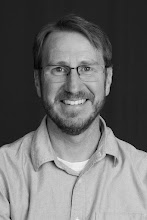Our Seminary Team met this afternoon for some team building. Our director of online education, Brian Westnedge, kicked things off with a 90's throwback tune:
I love my job. And, in case you're wondering, Brian has all four verses memorized.
Our Seminary Team met this afternoon for some team building. Our director of online education, Brian Westnedge, kicked things off with a 90's throwback tune:
I love my job. And, in case you're wondering, Brian has all four verses memorized.
I was perusing the Evangelical Fellowship of Canada's 2023 Significant Church Small Church Research Study the other day. The section entitled, "Quality of formal theological education." caught my attention. The authors conclude:
Clearly the small church pastors we interviewed and surveyed felt their ministry preparation was inadequate, especially their formal theological education. Theological institutions tend to prepare pastors to be specialists, concentrating on specific areas of ministry (i.e., preaching, youth, evangelism, etc.) which, in reality, is preparing pastors for specialized roles in large church ministry. Too often pastors told us they were learning by trial and error, a situation considered unacceptable in other professions such as medicine or law. Bible colleges and seminaries need to develop small church ministry tracks that include training for the competencies small church pastors need. If Bible colleges and seminaries cannot or will not teach these, then other means of ministry preparation need to be developed by denominations and other ministries that support small churches and small church pastors (p. 91).
These findings confirm other things I've read about pastors feeling ill-prepared for ministry upon graduation. I've written about competency-based theological education (CBTE) in my dissertation and I think it has some merit, although I'm not convinced it is the right path forward for small church preparation.
I just finished re-reading a convocation address delivered on September 16, 2003 in Miller Chapel by former Princeton Theological Seminary president, Thomas W. Gillespie. The title of the speech is "Why A Theological Education?" His address provides, I think, an excellent perspective for those of us hoping to do a better job of preparing clergy for ministry, especially in small churches. Near the conclusion he states,
The problem for the theological seminary is that sciences can be taught and learned, but arts can only be exemplified and emulated. As Michael Polanyi explains: "An art which cannot be specified in detail cannot be transmitted by prescription, since no prescription for it exists. It can be passed on only by example from master to apprentice" (Polanyi, Personal Knowledge, 53).
Gillespie then recounts a personal story from his past about meeting with ministerial colleagues wherein one person surprised him asserting, "we learn ministry from the significant pastors we have known, not from theological seminaries." Gillespie was taken aback since his seminary experience had been so positive. The following week he continued thinking about his colleague's statement, reflecting again and again on where and how he learned how to practice the art of ministry. He concludes, "to my surprise, I traced every single activity back to the pastors who had influenced my life."
I am beginning to wonder how I can take this knowledge and use my position as a Seminary dean to make a meaningful shift in how we think about education that will make a difference in the lives of Canadian pastors and churches. The classroom may be important, but opportunities to observe seasoned practitioners, learning with and from them in ministry contexts, are also desperately needed. I covet your thoughts, ideas, and prayers.
